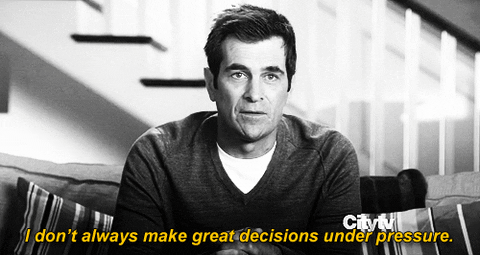By: Mindy Barnes
Social work leadership is being threatened. I think it’s time we start defending it!
#1. Some social workers just don’t want to be leaders.
Many individuals go into the social work profession with the mindset that they only want to work in direct service positions. They are not comfortable with macropractice social work and professional leadership. Unfortunately, many social workers play the role of enabler, mediator, and broker, all of which do not entail lasting power. (John Vassello, 2/4/2016, Week 2: Leadership) 
Recommendation: First, social workers should not automatically rule out macropractice before giving it a chance. They should also recognize that leadership skills are necessary to achieve influence and power, which are needed to become successful agents of change. MSW programs can help social workers gain these important skills by introducing leadership training into their curriculum. (Brilliant, 1986)
#2. They feel politically powerless.
It is easy to understand why many social workers view leadership positions within the profession as undesirable when political power is taken into consideration. Social work can often been seen as lacking power because of its strong connection with oppressed and vulnerable populations. The occupation also suffers because it is dominated by women and minorities, who have historically held low social and political statuses. (John Vassello, 2/6/2016, Week 2: Leadership)
Recommendation: Social justice and advocacy are key to gaining more political power. Social workers need to take action to make their voices heard within the public and political arenas. It’s time to speak up!

#3. They hit a glass ceiling (or glass escalator?).
Speaking of women, they may dominate the profession as a whole but leadership positions within social work are increasingly being taken over by men. There is a disproportionate representation of men in upper-level social work positions. They also move quicker into these positions and hold higher salaries than their female counterparts. (Gibelman & Schervish, 1993)
Recommendation: Some researchers suggest that agencies start valuing women as administrators for the types of skills, talents, and values they bring with them (Moran, Frans, & Gibson, 1995). Others suggest that women reclaim their historic roles as leaders within social work by forming bonds, lifting each other up, and advancing social justice, much like SSA founder Sophonisba Breckinridge (Jabour, 2012). I suggest all of the above!

#4. MSWs are being replaced by MBAs.
Finally, it has been an increasing trend that social work agencies hire individuals with MBAs or MPAs over MSWs to fill leadership positions (Grobman, 2012). This remains true, even though researchers have shown that an individual with an MBA might not be the most qualified to run a social work organization. (Moran, Frans, & Gibson, 1995).

Recommendation: Organizations should really consider hiring trained social workers as administrators over candidates with MBAs only. An individual with an MSW degree will uphold the values and ethics of the social work profession, while also being committed to the organization’s mission and clients (Moran, Frans, & Gibson, 1995). Vote MSW!

Sources:
Brilliant, E. (1986). Social work leadership: A missing ingredient?, Social Work, 31, 325-30.
Gibelman, M. & Schervish, P. H. (1993). The Glass Ceiling in Social Work: Is It Shatterproof?. Affilia, 8(4), 442-455. doi: 10.1177/088610999300800406
Grobman, L. (2012). Days in the Lives of Social Workers (4th ed.). Harrisburg: White Hat Communications.
Jabour, A. (2012). Relationship and Leadership: Sophonisba Breckinridge and Women in Social Work. Affilia, 27(1), 22-37. doi:10.1177/0886109912437496
Moran, J. R., Frans, D., & Gibson, P. A. (1995). A Comparison of Beginning MSW and MBA Students on Their Aptitudes for Human Service Management. Journal of Social Work Education, 31(1), 95-105. http://www.jstor.org/stable/41345852


